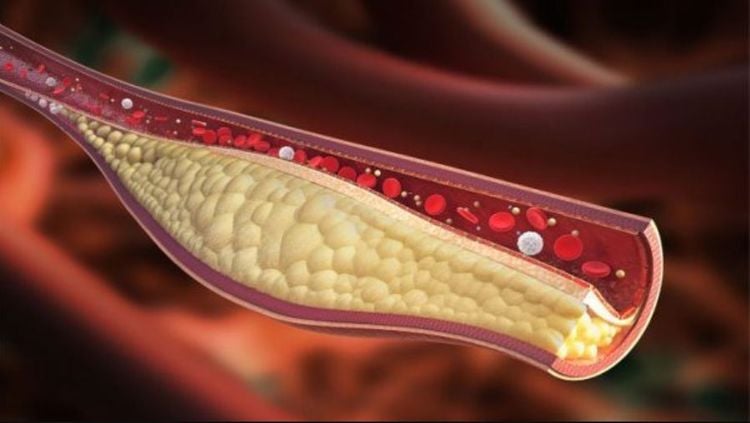Unlike vitamin A or vitamin B, vitamin K2 is not really popular and not many people know about it. Vitamin K2 rarely appears in the Western diet and does not receive much attention. However, this is a nutrient that plays an important role in many aspects of human health.
1. Overview of vitamin K
In 1929, vitamin K was first discovered and considered a nutrient that plays an important role in the blood clotting cascade in the body. The first report was recorded in a German scientific journal called “Koagulationvitamin”, which is also the origin of the name vitamin K.
Vitamin K was also discovered by dentist Weston Price, who traveled around the world in the early 20th century to study and research the relationship between diet and disease in different territories. He realized that in countries with less developed industries, people’s diets contained a relatively high amount of an unknown nutrient that helped prevent the formation of dental plaque and chronic diseases. He called this mysterious nutrient activator factor X (originally called “activator X”), which is today’s vitamin K2.
Vitamin K is divided into 2 main groups including:
- Vitamin K1: Also known as phylloquinone, found in plant-based foods such as green leafy vegetables.
- Vitamin K2: Also known as menaquinone, common in animal-based foods and fermented foods. Vitamin K2 can be divided into several different subgroups, the most important of which are MK-4 and MK-7.

Vitamin K plays an important role in the blood clotting cascade in the body.
2. What does vitamin K do?
In general, vitamin K is responsible for activating proteins that play a role in blood clotting, calcium metabolism, and regulating cardiovascular function.
One of the most important functions of vitamin K is to regulate calcium ion deposition. In other words, it promotes bone mineralization and prevents calcification in blood vessel walls and kidneys.
Some scientists believe that the roles of vitamin K1 and vitamin K2 are not the same, and that they should be classified as different nutrients in the body. This view is supported by animal studies showing that vitamin K2 reduces calcification inside blood vessels while vitamin K1 does not. Controlled studies in humans have also observed that vitamin K2 supplements have the ability to improve cardiovascular and skeletal health while vitamin K1 does not have this role. However, more human studies are needed to understand the differences in the effects of vitamin K1 and vitamin K2.
3. Vitamin K’s ability to prevent cardiovascular disease
Calcification and calcium deposition in the artery walls are risk factors for many dangerous cardiovascular diseases. Therefore, any agent that can reduce calcium deposition has a role in preventing many cardiovascular.
Vitamin K has the effect of preventing calcium deposition inside the arteries. In a 7- to 10-year study, people with the highest vitamin K2 supplements had a 52% higher risk of developing arterial calcification and a 57% lower risk of dying from cardiovascular disease. Another study of 16,057 women also showed that those with a diet rich in vitamin K2 had a lower risk of cardiovascular disease. With a daily intake of 10 micrograms of vitamin K2, the risk of cardiovascular disease is reduced by 9%.

Vitamin K helps prevent calcium from depositing inside the arteries.
On the other hand, vitamin K1 had no effect in these studies. However, it should be noted that all of the above studies are observational studies and cannot prove cause and effect. The few controlled studies that have been conducted using vitamin K1 have been largely ineffective. More controlled trials of vitamin K2 and cardiovascular disease over the long term should be conducted. However, there are currently many plausible biological mechanisms for the effects of vitamin K2 and its strong association with cardiovascular health in observational studies.
4. Ability of vitamin K to improve bone health and reduce the risk of osteoporosis
Osteoporosis is a common health problem in many countries around the world, especially in the elderly population. Older women are more susceptible to osteoporosis and have an increased risk of fractures and other disease burdens.
As mentioned above, vitamin K2 plays a central role in the metabolism of calcium, the main trace element in human bones and teeth. Vitamin K2 activates the calcium-binding proteins osteocalcin and GLA, which help build and maintain bone strength. In addition, there is strong evidence from controlled studies that vitamin K2 provides many benefits for bone health in the body. A 3-year study of 244 postmenopausal women showed that taking vitamin K2 supplements slowed the progression of bone mineral density loss due to aging. Several long-term studies in Japanese women have found similar benefits when using high doses of vitamin K2. Of the 13 studies, only one failed to show any improvement in bone health. Seven observational clinical trials of fractures found that vitamin K2 reduced vertebral fractures by about 60%, hip fractures by about 77%, and other fractures by about 81%.
Vitamin K supplements are also officially recommended for the prevention and treatment of osteoporosis in Japan. However, some researchers are not convinced, as two large observational studies concluded that the evidence for vitamin K supplementation for this purpose is insufficient.
5. The effect of vitamin K on improving oral health
Researchers have suggested that vitamin K2 may have an effect on oral health. However, no human studies have proven this. Based on many animal studies and the role of vitamin K2 on bone metabolism, it is reasonable to conclude that it has an effect on oral health.
One of the main proteins that regulates oral health is osteocalcin, which is also a protein that plays an important role in bone metabolism and activates vitamin K2. Osteocalcin activates the mechanism of development and production of dentin, the calcified tissue layer under the enamel. Vitamins A and D also play an important role here, working together with vitamin K2.
6. The anti-cancer effect of vitamin K
Cancer is an increasingly common disease in many regions of the world with a high mortality rate. Many new drugs are being discovered to treat cancer, but the number of new cases continues to increase. Therefore, it is important to find effective cancer prevention measures.
Many studies have been conducted to find the relationship between vitamin K2 and some specific types of cancer. Two clinical studies suggest that vitamin K2 reduces the recurrence of liver cancer and prolongs survival. Furthermore, an observational study of 11,000 men found that high vitamin K2 supplementation was associated with a reduced risk of prostate cancer, while vitamin K1 did not have this effect. However, more quality research is still needed before concluding on this effect of vitamin K in general and vitamin K2 in particular.
7. Methods of supplementing vitamin K2 for the body
Many diverse foods are rich in vitamin K1 but low in vitamin K2. The human body can partially convert vitamin K1 into vitamin K2. This is useful because vitamin K1 is 10 times more abundant in the diet than vitamin K2. However, recent evidence suggests that this conversion is not very efficient and that the human body needs to obtain more vitamin K2 directly from the diet.
Vitamin K2 is also produced by the intestinal bacteria in the colon. Some evidence suggests that the use of broad-spectrum antibiotics causes vitamin K2 deficiency.

Users can supplement vitamin K2 through their daily diet.
The average amount of vitamin K2 in the modern diet is quite low. Vitamin K2 is mainly found in some meats and fermented foods, which are not recommended for regular consumption. Animal sources of vitamin K2 include high-fat dairy products from cows, egg yolks, and animal liver.
Vitamin K is a fat-soluble compound, which means that lean meats or low-fat foods from animals do not contain much vitamin K2. Animal foods contain more of the MK-4 subtype of vitamin K2, while fermented foods contain more of the MK-5 to MK-14 subtypes.
If foods rich in vitamin K2 are not readily available, taking a vitamin K2 supplement may be an alternative. The effectiveness of vitamin K2 supplements may be enhanced when combined with vitamin D supplements. Meeting the daily requirement of vitamin K2 holds promise for improving health outcomes for many individuals, although more research is needed in the future.





